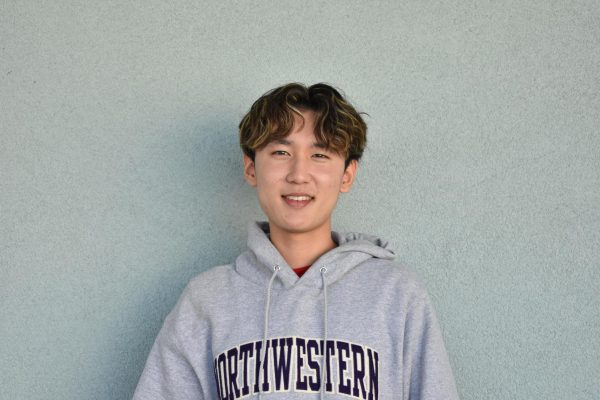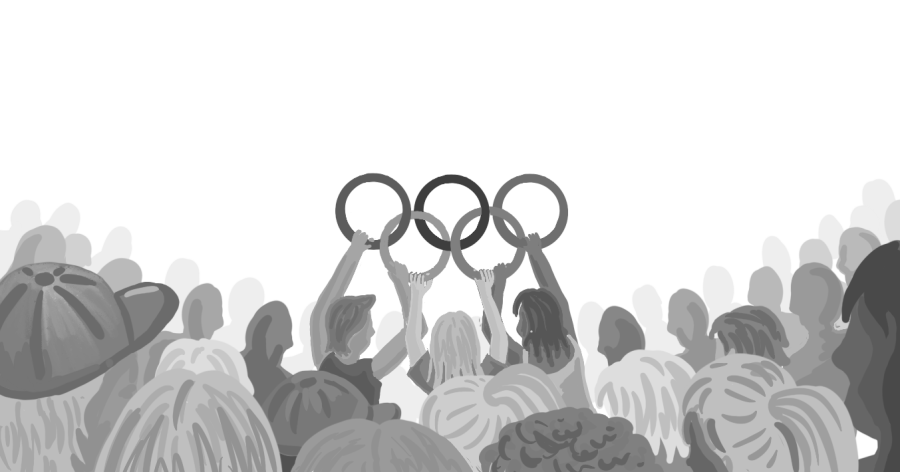U.S. Beijing Olympic boycott sparks debate among students, staff
On Dec. 6 2021, White House press secretary Jen Psaki announced this statement about the Beijing Olympics: “The Biden administration will not send any diplomatic or official representation to the Beijing 2022 Winter Olympics and Paralympic Games.” This statement came at the heels of several human rights organizations’ calling for an Olympic boycott due to China’s ongoing genocide against ethnic groups, suppression of freedom in Hong Kong and repression of the Tibet people and culture.
President Biden’s decision was neither unexpected nor unprecedented: former President Jimmy Carter withdrew both American athletes and diplomats from attending the 1980 Moscow Olympics, and the Obama administration opted to only send lower-profile officials to the 2014 Sochi games due to political differences. The United States’ boycott of the Beijing Olympics will be a blend of these past approaches: while athletes will still be allowed to participate, no American political officials will be in attendance.
Although the decision received bipartisan support, some, such as Arkansas Senator Tom Cotton, have called for a boycott on a larger scale. “The President has once again opted for a half measure when bold leadership was required,” Cotton said. “The U.S. should fully boycott the ‘genocide games’ in Beijing.”
On the other hand, Social Studies Instructional Lead Jeffrey Patrick holds concerns regarding the unintended consequences of a full boycott. “Given the nature of some sports, you only have one opportunity to participate in the Olympics,” he said. “I understand why politicians might be making this point, but I sympathize with the athletes.”
Meanwhile, U.S. allies such as Australia, Canada and the U.K. have also announced diplomatic boycotts. The International Olympic Committee (IOC) President Thomas Bach reiterated the organization’s system of political neutrality. “By not commenting on political issues, you’re not taking a side,” he said in a press conference. “This is the mission of the IOC. Otherwise, we could not manage to accomplish the mission of the Games: to bring and unite the world.”
Amid continuing disputes, social studies teacher Laurel Howard noted the difficulty of predicting the effect of a Beijing 2022 boycott. “We don’t have a lot of data points on Olympic boycotts and their effectiveness, so it’s hard to tell what’s going to happen,” she said.
However, historical examples—the 1980 Olympics, for instance—can provide insight into the effect of boycotts. “In the 1980 Olympics, the boycotting countries were protesting an invasion of Afghanistan by the Soviet Union,” Howard said. “The Soviet Union did eventually crumble, but there were a lot of other factors. The fall only happened seven years later.”
According to U.S. Foreign Policy teacher Tara Firenzi, New Zealand’s rugby team toured South Africa before the 1976 Olympics despite the United Nations’ calls for a sporting embargo due to South Africa’s apartheid abuses. While countries pressured the IOC to ban New Zealand from the 1976 Montreal Olympics, it refused to do so. That year, 29 predominantly African nations did not attend the games. “On the issue of apartheid, it was good that the abuses in South Africa were taken seriously,” Firenzi said. “It forced the country into an isolated position in terms of its stance on its discrimination and deeply oppressive policies. There could have been more done beyond the boycott, but the Olympics were a strong message to send in the case of extreme wrongs.”
While previous boycotts have each carried unique political contexts, one trend that most agree upon is that Olympic protests carry more symbolism than impact. “If the goal is to draw more attention to this issue, I think it’s absolutely doing that,” Howard said. “If the intended effect is stopping China from carrying out a genocide, I’m not sure how far a symbol can go.”
Senior Neha Muthiah, the Editor-in-Chief of The Chariot—Gunn’s social and political magazine—pointed to more meaningful actions that the United States could take. “The U.S. cannot influence China’s opinion, but our leaders can learn how to cooperate in matters requiring the cooperation of the world’s giants,” she said. “Messages like the boycott erode the possibility of cooperation without any projected improvement in China’s human rights abuses.”
Patrick even questions the morals behind the U.S. justifying their Olympic boycott. “The U.S. prison population as a percentage of its entire population is larger than that of any other country, including China’s,” Patrick said. “When you also look at the disproportionate racial makeup of our prison population, it’s hard to make the argument that it is color-blind. I think it’s disingenuous to protest other countries’ practices instead of reforming our own policies to serve as a model.”
Ultimately, one must place this Olympic boycott within its historical context to truly understand intent and ramifications. “Rather than addressing China’s human rights violations, the U.S. is more interested in trying to demonstrate to the world that we are stronger and more powerful than China,” Firenzi said. “The optics are extremely important at a moment where China is a genuine threat to the hegemony that the United States has enjoyed for the last few decades.”
Muthiah looks to what the Olympic boycott reveals about global relations. “Western countries conduct massive violations of human rights given that they directly or indirectly participate in wars,” she said. “There’s scrutiny in the analysis of China’s human rights positions not afforded to the western world. While China certainly has committed violations, we selectively ignore the wrongdoings of our allies.”
The Beijing Olympics will officially commence on Feb. 4, 2022.
Your donation will support the student journalists of Henry M. Gunn High School. Your contribution will allow us to purchase equipment and cover our annual website hosting costs.

Senior Chris Lee is a managing editor for The Oracle and has been on staff since August 2021. In his free time, Chris enjoys driving, going out for food...




